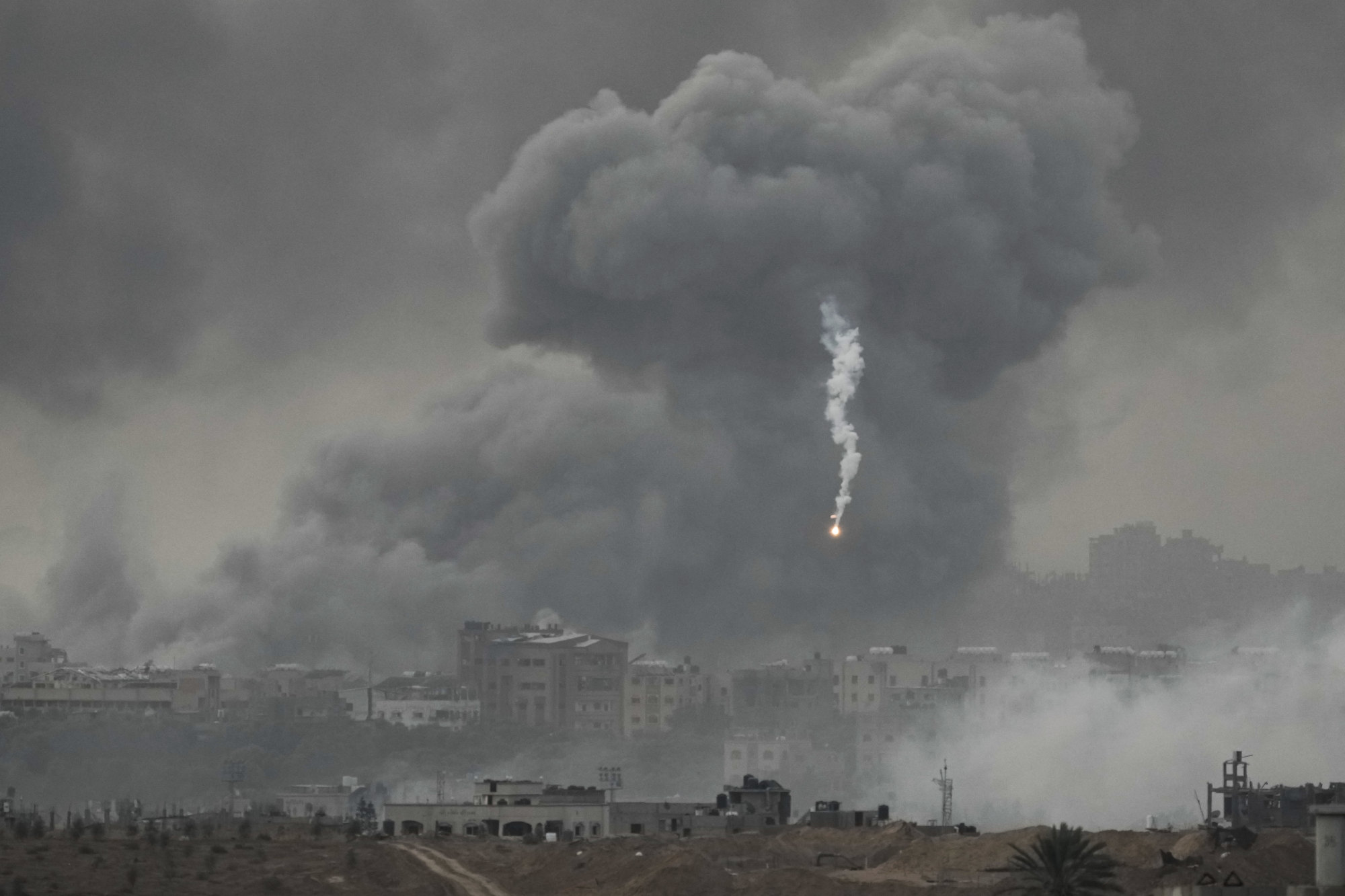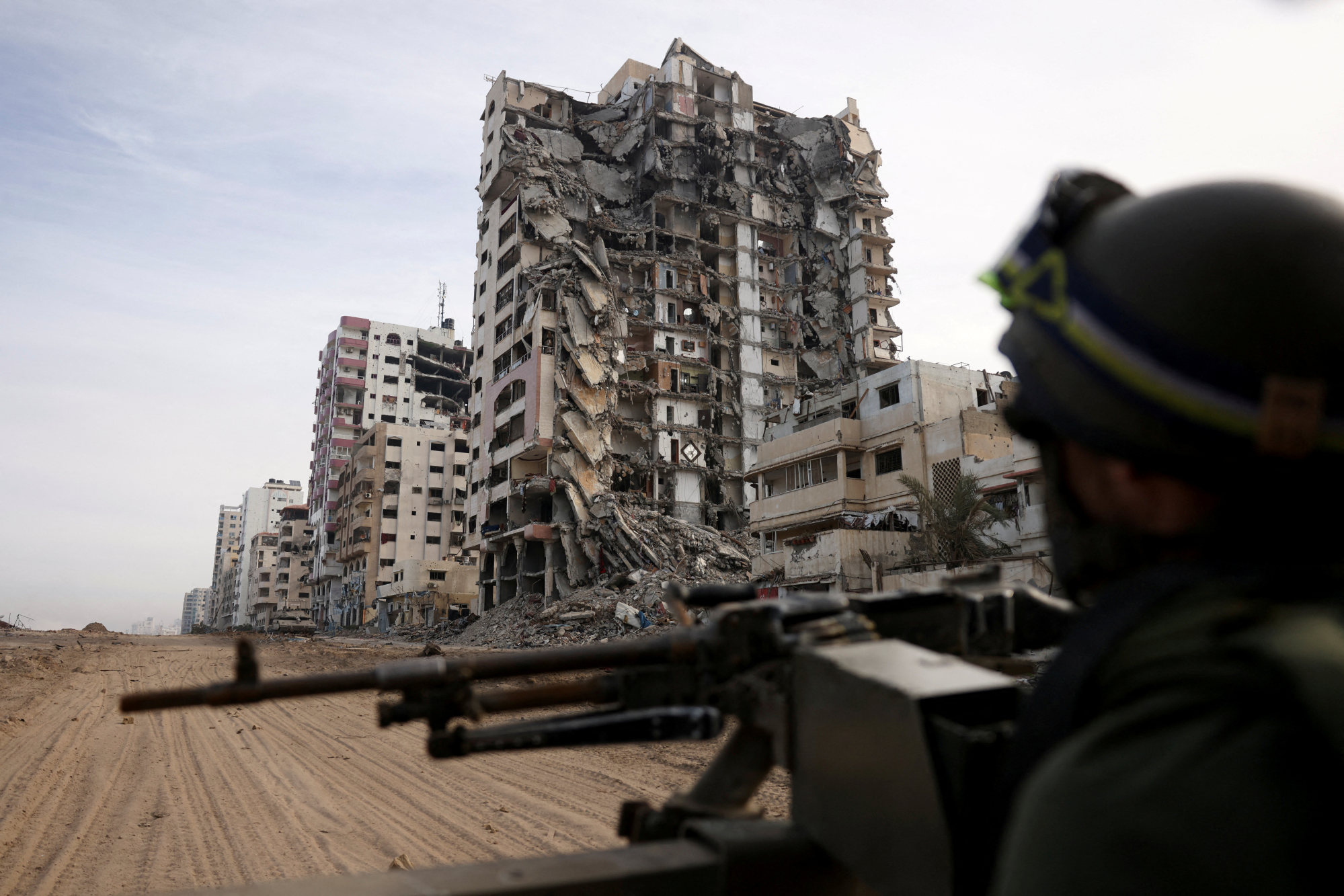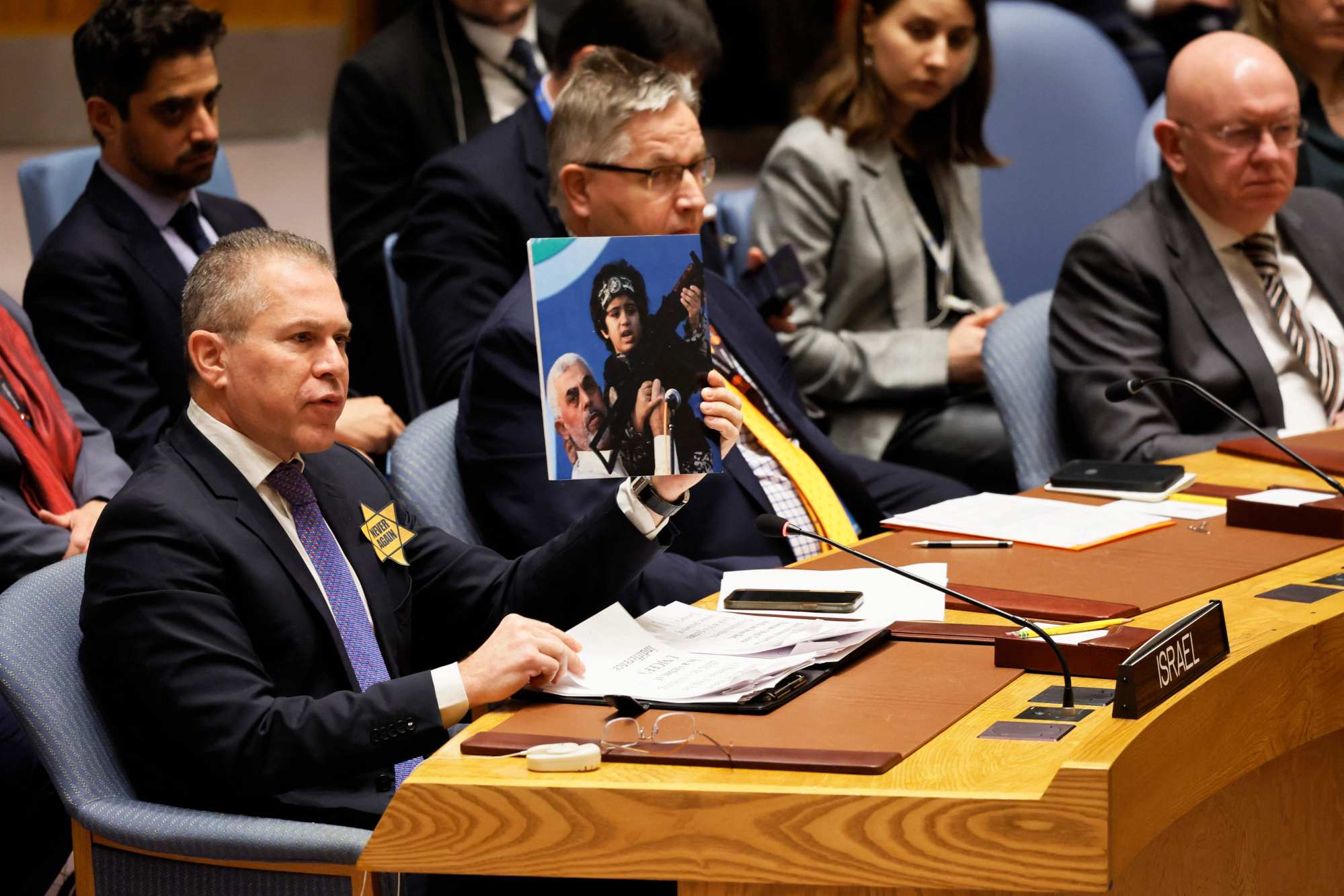Who is Yahya Sinwar? Shadowy Hamas leader in Gaza is at top of Israel’s hit list
[ad_1]
If he can win the release of all Palestinian prisoners and the lifting of the 16-year blockade of Gaza, people will feel they obtained something, said Hani al-Masri, a veteran Palestinian analyst.
Hamas masterminds top Israel’s ‘dead man walking’ hit list
Hamas masterminds top Israel’s ‘dead man walking’ hit list
Otherwise, “it will be a big problem” for Sinwar personally “because people will say that there was destruction, and we got nothing in return”.
The attack caught Israel’s military and intelligence establishment off guard and shattered the image of Israeli invincibility, as militants killed some 1,200 people, mostly civilians, in scenes of brutality.
Hamas said it launched the attack in retaliation for increasing Israeli depredations against Palestinians and the continuing occupation of the West Bank and blockade of Gaza – and to push the Palestinian cause back onto the world agenda.

What it brought was devastating Israeli retaliation, killing thousands and levelling swathes of Gaza.
To Israelis, Sinwar is a nightmarish figure. The Israeli army’s chief spokesperson, Rear Admiral Daniel Hagari, called him a murderer “who proved to the whole world that Hamas is worse than Isis”, referring to Islamic State.
Among fellow Palestinians, some respect Sinwar for standing up to Israel and for remaining in impoverished Gaza, in contrast to other Hamas leaders living more comfortably abroad.
Gaza hostage release will not start before Friday, Israel says
Gaza hostage release will not start before Friday, Israel says
In a show of defiance two years ago, Sinwar ended one of his few public speeches by inviting Israel to assassinate him, proclaiming: “I will walk back home after this meeting”. He then did so, shaking hands and taking selfies with people in the streets.
But he is also deeply feared for his iron grip in Gaza, where public dissent is suppressed.
In contrast to the media-friendly personas cultivated by some of Hamas’ political leadership, Sinwar has not sought to build a public image. He is known as the “Butcher of Khan Younis” for his brutal approach to Palestinians suspected of collaborating with Israel.

Sinwar was born in 1962 in Gaza’s Khan Younis refugee camp to a family that was among thousands of Palestinians driven from what is now the city of Ashqelon during the 1948 war surrounding Israel’s creation.
He was an early member of Hamas, which emerged from the Palestinian branch of the Muslim Brotherhood in 1987, when the coastal enclave was under Israeli military occupation.
Sinwar convinced the group’s founder, Sheikh Ahmed Yassin, that to succeed as a resistance organisation, Hamas needed to be purged of spies for Israel. They founded a security arm, then known as Majd, which Sinwar led.
Arrested by Israel in the late 1980s, he admitted under interrogation to having killed 12 suspected collaborators. He was eventually sentenced to four life terms for offences that included the abduction and killing of two Israeli soldiers.
Michael Koubi, a former director of the investigations department at Israel’s Shin Bet security agency who interrogated Sinwar personally, recalled the confession that stood out to him the most: Sinwar recounted forcing a man to bury his own brother alive because he was suspected of working for Israel.
“His eyes were full of happiness when he told us this story,” Koubi said.

But to fellow prisoners, Sinwar was charismatic, sociable and shrewd, open to detainees from all political factions.
He became the leader of the hundreds of imprisoned Hamas members. He organised strikes to improve conditions. He learned Hebrew and studied Israeli society.
“Being a leader inside prison gave him experience in negotiations and dialogue, and he understood the mentality of the enemy and how to affect it,” said Anwar Yassine, a Lebanese citizen who spent about 17 years in Israeli jails, much of the time with Sinwar.
Yassine noted how Sinwar always treated him with respect even though he belongs to the Lebanese Communist Party, whose secular principles conflict with Hamas’ ideology.
In 2008, Sinwar survived an aggressive form of brain cancer after treatment at a Tel Aviv hospital.
Prime Minister Benjamin Netanyahu released him in 2011 along with about 1,000 other prisoners in exchange for Gilad Schalit, an Israeli soldier captured by Hamas in a cross-border raid. Netanyahu was harshly criticised for releasing dozens of prisoners held for involvement in deadly attacks.
Back in Gaza, Sinwar closely coordinated between Hamas’ political leadership and its military wing, the Qassam Brigades. He also cultivated a reputation for ruthlessness. He is widely believed to be behind the unprecedented 2016 killing of another top Hamas commander, Mahmoud Ishtewi, in an internal power struggle.
In 2017, he was elected head of Hamas’ political bureau in Gaza. Sinwar worked with Hamas’ leader in exile, Ismail Haniyeh, to realign the group with Iran and its allies, including Lebanon’s Hezbollah. He also focused on building Hamas’ military power.
For Hamas, surviving the war in any form would defy Israel and offer a victory of sorts. Sinwar himself may not survive.
“I’m sure we will eventually kill him,” Koubi said. “But to destroy the ideology he planted, that’s not so easy.”
[ad_2]
Source link





